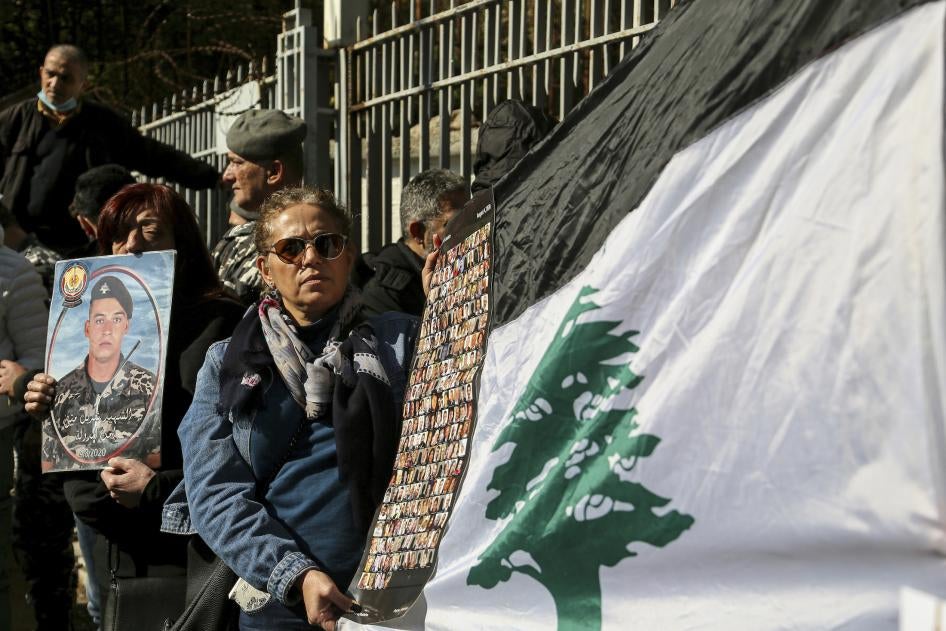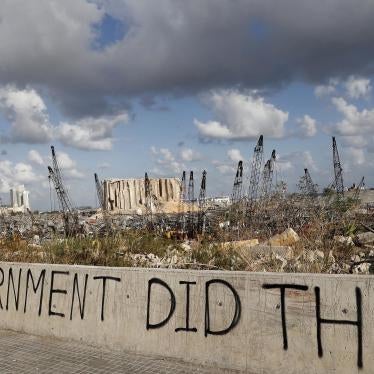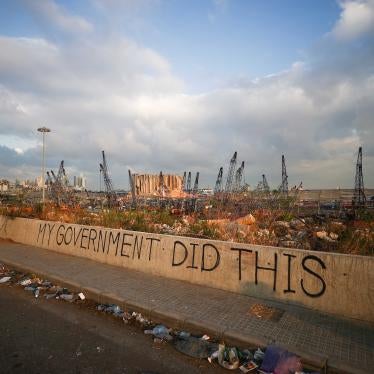In a historic first this past week, a UK court ruled in favor of three families whose relatives were victims of the 2020 explosion at Beirut’s port.
The civil lawsuit was brought against Savaro Limited, a chemical trading company in the United Kingdom which owned the 2,750 tons of ammonium nitrate that was stored in hazardous conditions in Beirut’s port for over six years before it caused the catastrophic 2020 explosion that killed at least 220 people and wounded over 7,000 others.
The judgment, a step toward justice for some of the victim’s families, represents a stark contrast to domestic proceedings in Lebanon, where rampant political interference has halted the criminal investigation into the explosion. Despite the significant evidence implicating Lebanese officials in the explosion, some of the suspects have obstructed the domestic investigation, shielding themselves and others responsible for human rights violations from accountability.
As impunity prevails in Lebanon, victims’ families, rights groups, and even Lebanese parliamentarians are looking for other avenues to obtain justice. This has included civil suits, like the successful one in the UK last week, as well as sustained calls to the United Nations Human Rights Council (UNHRC) to establish an international fact-finding mission on the blast. Over 40 current members of Lebanon’s parliament have joined more than 162 Lebanese and international rights groups, survivors, and families of the victims in calling for an international investigation.
An international investigation could establish the facts and circumstances, including the root causes, of the explosion. It could also establish state and individual responsibility and support justice efforts and reparations for the victims. An investigation is needed to preserve evidence, and it could make recommendations on the necessary steps to remedy the violations and ensure they do not occur again. Its findings could also be utilized in future judicial proceedings in Lebanon and other jurisdictions.
By supporting such an investigation at the UNHRC session beginning today, member states, including those like Australia, Bangladesh, Canada, Egypt, France, Germany, Pakistan, Palestine, and the United States, whose nationals died in the explosion, will have another opportunity to call for truth and justice and stand with victims’ families.
The Beirut explosion was a tragedy of historic proportions, arising from the failure to protect the fundamental right to life. The scope of the violations, which includes non-Lebanese victims and companies, should be a matter of international concern and action.










